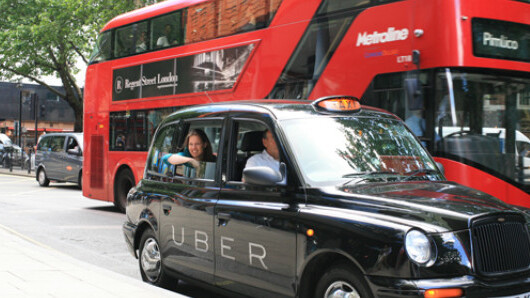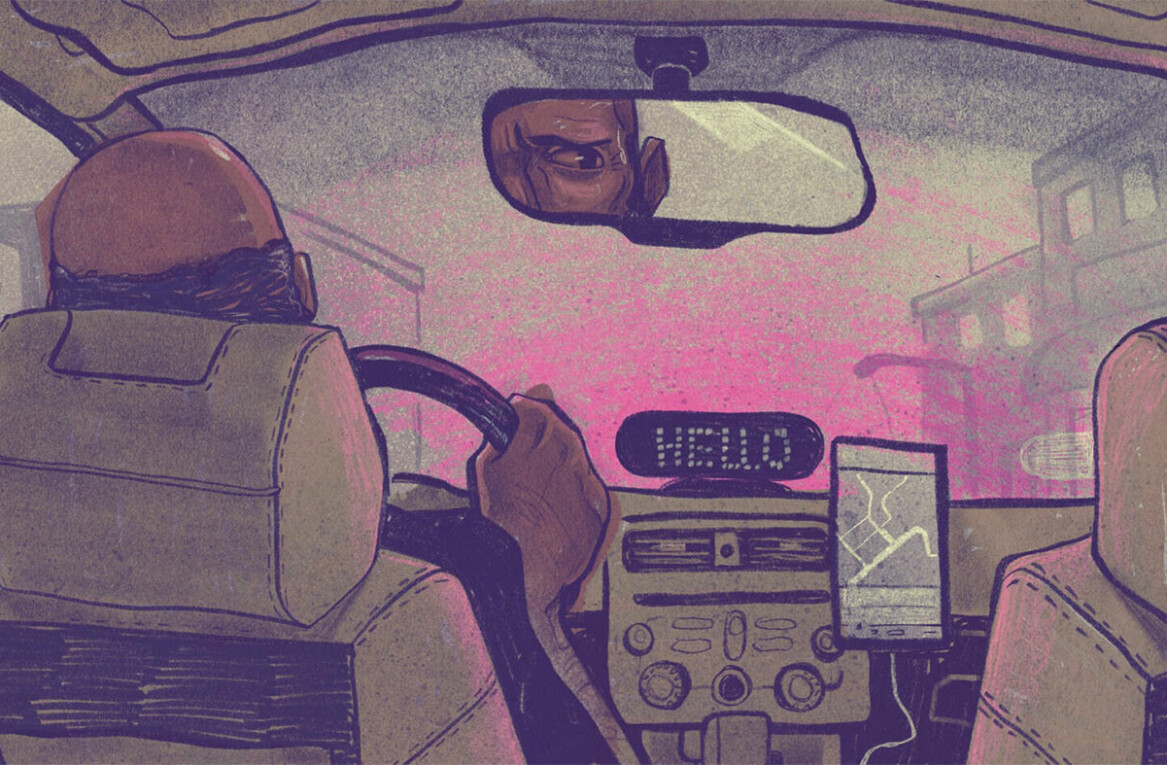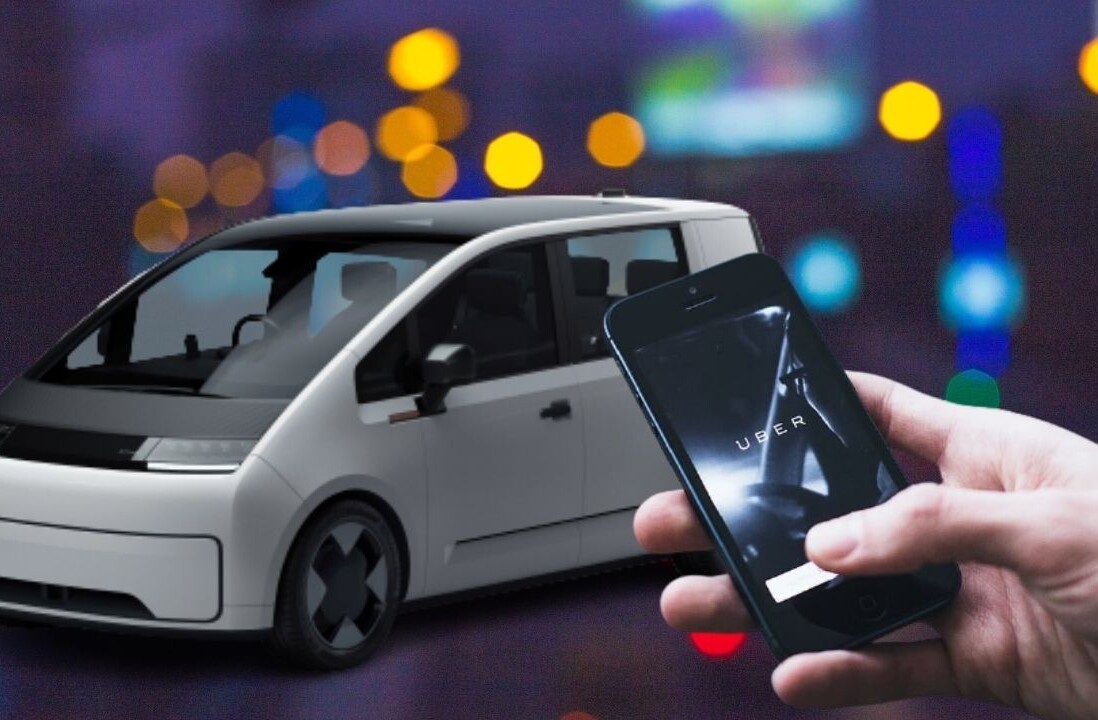
Back on June 11, thousands of black-cab drivers filled the streets of London in protest against Transport for London (TfL) and technology-enabled services such as Uber. Their issue? Well, they argued that such services allow its users to beckon a cab with their mobile phone, and the associated fare is worked out using GPS. The crux of cabbies’ gripe is that this is basically the same as a taximeter, which legally only black cabs are allowed to use in the capital.
You may also remember that Uber tried to pull a PR masterstroke by launching its UberTaxi platform for London cabbies on the day of the protests, and the company certainly garnered a lot of attention because of the protests – it claimed to have seen a 850 percent rise in sign-ups on the day.
London cabbies have become increasingly frustrated at the presentation of the story in the media, with many at pains to point out that the issue is with Transport for London (TfL), the body that regulates and licenses taxi and private hire vehicles in the capital, and not specifically with services such as Uber.
With that in mind, TfL recently announced it was escalating things to the High Court to reach a legally binding conclusion on whether smartphones that use GPS technology to measure the time and distance of a journey to calculate a fare “comply with current law on ‘taximeters’”.
Today, TfL has issued a statement on the matter. And perhaps not too surprisingly, it has concluded that Uber is operating lawfully and there is no further case to answer. It says:
“In relation to the way Uber operates in London, TfL is satisfied that based upon our understanding of the relationship between the passenger and Uber London, and between Uber London and Uber BV, registered in Holland, that it is operating lawfully under the terms of the 1998 PHV(L) Act.”
TfL says its position is “supported by legal advice,” and reiterates that there are “no grounds to take action against Uber London Ltd, Uber BV or Uber drivers under s.2 of the 1998 Act.”
However, TfL says it hasn’t been able to seek advice from the High Court as originally planned because there are separate “ongoing criminal proceedings” against Uber drivers that have been brought about by the Licensed Taxi Drivers Association (LTDA), which means the High Court is now unable to consider this case brought to it by TfL. For the time-being, at least.
Also, in reference to the taximeter, it says:
“[a taximeter is] a device for calculating the fare by means of time or distance (or both). However, it is not unlawful for a private hire operator to charge its customers on the basis of time taken and distance travelled in respect of journeys.”
And:
“TfL’s view is that smart phones that transmit location information (based on GPS data) between vehicles and operators, have no operational or physical connection with the vehicles, and receive information about fares which are calculated remotely from the vehicle, are not taximeters within the meaning of the legislation.”
While TfL is striving to draw a line under the matter with this statement, it likely won’t appease the thousands of cabbies across the city who feel as though it’s one licensing rule for them, and another licensing rule for Uber and its drivers.
At any rate, you can read the TfL statement in full below:
TFL BOARD 3rd JULY 2014
Members of the board will be concerned to know what was behind the taxi dispute in London on 11th June. On that day at 1400 there was a protest which involved some 5,000 cabs and which was contained within Whitehall for about an hour. The MPS issued certain directions to allow peaceful protest whilst minimising the effect on emergency services and other essential activity.
Central to the dispute is the licensed private hire operator ‘Uber’ which was granted a licence in May 2012. It operates in 69 other cities. This operator does not own its own vehicles but ‘signs up’ licensed PH drivers and vehicles. Customers download an App to their smartphone or computer and book a PH vehicle using it. The work is accepted by the operator, dispatched to a driver and the customer gets the name, photograph and registration number of vehicle and the journey is tracked using GPS. At the end of the journey data is transmitted to remotely located servers and the fare calculated and then communicated to the driver’s smart phone. Usually customers have set up a credit card account to facilitate payment.
It has been alleged by the PHV trade and the licensed cab trade:
That the entity that is accepting Uber bookings, and making provision for those bookings to be invited or accepted, is not a licensed PHV operator. There are references to Uber BV, a related but distinct company based in the Netherlands in certain Uber documentation
and
That Uber PHVs are equipped with taximeters – a device prohibited in PHVs.
In relation to the way Uber operates in London, TfL is satisfied that based upon our understanding of the relationship between the passenger and Uber London, and between Uber London and Uber BV, registered in Holland, that it is operating lawfully under the terms of the 1998 PHV(L) Act.
As the licensing authority TfL is bound to consider the initial licence application and has a duty to grant it unless we are not satisfied that the applicant is a fit and proper person to hold an operator’s licence, or that the applicant has failed to met any further requirements that have been prescribed (such as those relating to operating centres). The company has taken steps and indeed made changes to its documentation to make it entirely clear as to who is accepting bookings.
Taking into account this, and having regard to case law relating to provisions outside London which are similar to s.2 of the PHV(L) Act 1998, TfL’s position, supported by legal advice, is that there are no grounds to take action against Uber London Ltd, Uber BV or Uber drivers under s.2 of the 1998 Act.
In respect of the taximeter issue, s.11 of the 1998 Act prohibits PHVs from being equipped with a taximeter. The latter is defined as a device for calculating the fare by means of time or distance (or both). However, it is not unlawful for a private hire operator to charge its customers on the basis of time taken and distance travelled in respect of journeys.
Uber drivers are issued with a smartphone. At the end of a journey the smart phone sends details of the journey to a remotely based server and then receives by return the fare to be charged.
TfL’s view is that smart phones that transmit location information (based on GPS data) between vehicles and operators, have no operational or physical connection with the vehicles, and receive information about fares which are calculated remotely from the vehicle, are not taximeters within the meaning of the legislation.
Nevertheless, given that the legislation predates the advent of smartphones, TfL accepts that this judgment is finely balanced. It is for that reason that TfL wrote to all interested parties and advised them of our intention to seek a definitive, and binding, declaration from the High court.
However, the LDTA has issued summonses in the Westminster Magistrates’ Court against a number of Uber drivers under s.11 of the 1998 Act. This now prevents TfL proceeding as we had intended as the High Court will not consider the issue whilst there are ongoing criminal proceedings on the same issues of law.
TfL is therefore now unable to seek early clarification from the High Court. In due course the LTDA summonses will be heard in the Magistrates’ court. The Magistrates’ decision is not binding, will almost certainly be appealed (by someone), which inevitably means the matter will end up, rather later than sooner, in the High Court.
I regret therefore that the essential, and binding, clarity about how the law should be applied in these circumstances will not be delivered for some considerable time.
Lastly although the most recent compliance check at the premises of Uber London Ltd involving several thousand records was entirely satisfactory, an earlier check did reveal a case where it appears a driver was not covered by insurance. Proceedings against Uber and the driver in respect of this are underway and this is consistent with the actions taken by TfL when it finds issues such as this. This is now a matter for the court.
I hope that this summary is helpful to Board Members.
Get the TNW newsletter
Get the most important tech news in your inbox each week.




